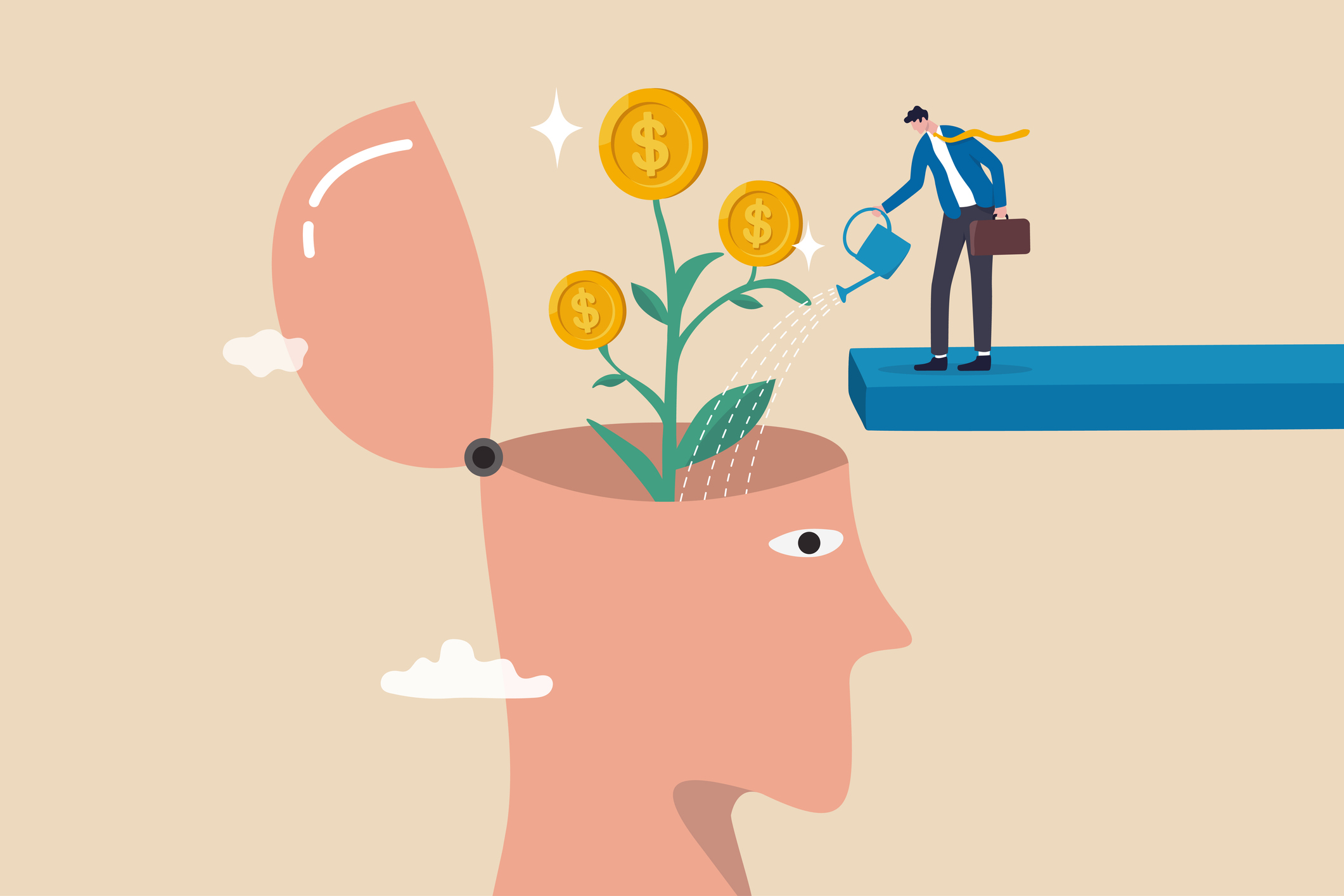4 tips to reframe your money mindset
Try a little 'brain-training' to shift your financial habits and perspective


A free daily email with the biggest news stories of the day – and the best features from TheWeek.com
You are now subscribed
Your newsletter sign-up was successful
"If you can't master your money mindset, you will never master your money," according to Kiplinger. But at the same time, "the beliefs, values and attitudes we have around money" also turn out to be "one of the least understood elements of their finances" for many people.
This may be part of why "even when we set out with the best intentions we often end up making the same mistakes" when it comes to our money, The Wall Street Journal explained. But there is hope — according to the Journal, with "a little brain training and putting up some guardrails" it is possible to shift engrained money mindsets.
1. Pinpoint the motivations behind your financial decisions
According to Kiplinger, "the first step to improve your money mindset is to identify the healthy beliefs you want to keep and the unhealthy ones that no longer serve you." You might suss this out by unpacking the reasoning behind each you make each decision around money and then considering how that decision made you feel and whether or not it aligns with your values.
The Week
Escape your echo chamber. Get the facts behind the news, plus analysis from multiple perspectives.

Sign up for The Week's Free Newsletters
From our morning news briefing to a weekly Good News Newsletter, get the best of The Week delivered directly to your inbox.
From our morning news briefing to a weekly Good News Newsletter, get the best of The Week delivered directly to your inbox.
And don't feel discouraged if this process of gaining greater awareness isn't always smooth-going. Per Clever Girl Finance, "improving your mindset is not a one-and-done type of thing" — instead, "just like with the muscles in your body, you have to work to maintain it continuously otherwise it will begin to deteriorate."
2. Make spending a little less easy
Or, as the Journal puts it, "make spending hurt." According to the Journal, which cites Scott Rick, an associate professor of marketing at the University of Michigan's Ross School of Business, "making yourself more aware when money is leaving your wallet helps people spend less."
There are a variety of tactics you can employ to gain this increased awareness. For one, you can "clear your saved credit card information from websites and apps," so you are forced to reenter all of your information each time you go to buy something, highlights the Journal. Another trick, per Rick, is to get a physical receipt when you shop in person, as this "makes it easier to register how much you are spending in the moment."
3. Carve out dedicated time to confront your finances
If you're hiding from tackling financial tasks or kicking them down the road for a rainy day, rip off the bandaid. One thing that can be immensely helpful for your financial mindset (and overall financial well-being) is scheduling a day dedicated to your financial health, per the Journal. You might "use that day to tackle tasks such as canceling a subscription you don’t use anymore or closing an account that has been hitting you with fees."
A free daily email with the biggest news stories of the day – and the best features from TheWeek.com
And while this may sound like a real bummer of a way to spend a day, you can find ways to make it more manageable — and enjoyable. For instance, you might treat yourself to a coffee on your financial health day, or "go for a quick walk or find something that will ease the tension," Bari Tessler, a financial therapist, told the Journal.
Or, Tessler continued, "if a whole day of financial chores feels overwhelming, take 15 minutes a day to cross one item off your to-do list."
4. Let yourself have some enjoyment
When it comes to reframing your money mindset, it's not all about pain for gain. Especially given that many people's financial mindsets are clouded by feelings of guilt, fear and anxiety, it's also helpful to learn to responsibly enjoy the money you've worked hard to earn. As Rick highlights to the Journal, "don't beat yourself up over these little things that might actually be important for your mental well-being," whether that's a latte or another type of treat.
And while you're at it, work on cultivating gratitude for what you do have (those aforementioned little treats included). As Clever Girl Finance explains, "gratitude also drives contentment in your life which is key to wealth building because when you are content with what you have, you are less compelled to spend, spend, spend."
Becca Stanek has worked as an editor and writer in the personal finance space since 2017. She previously served as a deputy editor and later a managing editor overseeing investing and savings content at LendingTree and as an editor at the financial startup SmartAsset, where she focused on retirement- and financial-adviser-related content. Before that, Becca was a staff writer at The Week, primarily contributing to Speed Reads.
